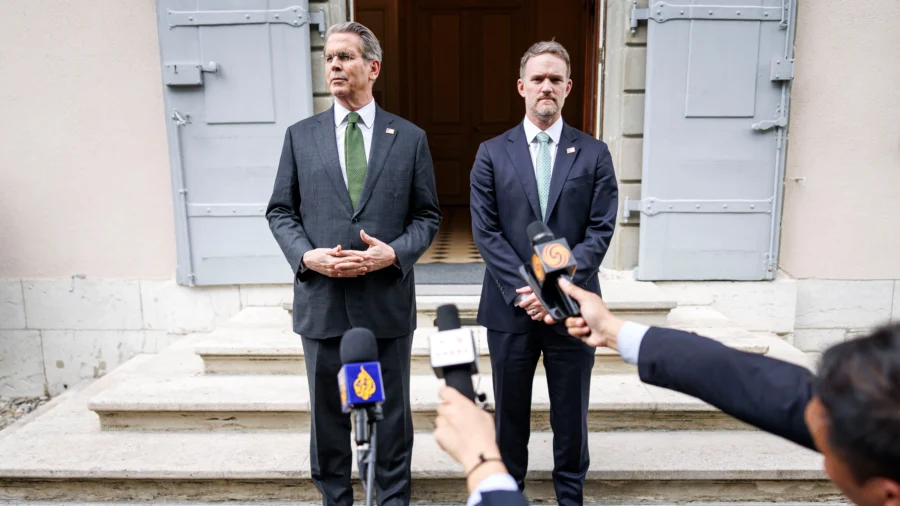Monday, May 12, 2025

The Mastercard Economics Institute (MEI) has recently published its annual report, Travel Trends 2025, offering comprehensive insights into the global travel landscape through aggregated consumer spending and travel data.
The report explores critical factors shaping travel choices worldwide, focusing particularly on motivations linked to sports, wellness, culinary experiences, currency fluctuations, and shifts in business travel patterns.
Official data and analyses from government tourism departments confirm these emerging travel trends, emphasizing purposeful, authentic travel experiences amid global economic and policy uncertainties.
Sports Tourism Drives Global Travel Growth
The economic impact of sports tourism is significant and measurable, as seen through official government travel data correlated with major sporting events.
For instance, the Champions League Final in London saw remarkable travel spending increases from Germany and Spain. German visitors’ spending in the UK rose by 61% year-on-year during the event, while Spanish visitor expenditures surged dramatically by 148%. Such statistics from official British tourism websites underline the powerful pull of major sports competitions on international tourism flows.
Similarly, the Baseball World Series hosted in Los Angeles officially marked a substantial increase in Japanese visitors to the U.S., rising by 91%.
These findings, supported by U.S. governmental tourism statistics, highlight the powerful effect renowned athletes, such as Shohei Ohtani, have on global traveler behavior.
In South America, official Argentine tourism authorities reported significant spending boosts during the Copa Libertadores Final in Buenos Aires, predominantly driven by Brazilian tourists.
The spending by Brazilian travelers was more than double the overall growth from other international visitors, showcasing how intense regional sporting rivalries can powerfully drive cross-border tourism.
Purposeful Wellness Travel Gains Momentum
Wellness travel has emerged as a priority among global travelers, supported by official tourism board initiatives and wellness promotion programs.
The Wellness Travel Index (WTI) developed by MEI aligns closely with official tourism strategies in Namibia, South Africa, and Thailand, countries that lead global wellness offerings through sustainable eco-lodges, nature retreats, and meditation facilities officially recognized by local tourism authorities.
Government tourism websites in Italy, New Zealand, and Canada similarly reflect strong growth in wellness travel. Official policies and tourism promotion strategies increasingly focus on wellness tourism as a key economic driver.
Investments in infrastructure and sustainable practices enhance national appeal, affirming wellness as a powerful motivation for travelers in search of authentic, restorative experiences.
Culinary Tourism: Global Cities Embrace Food Enthusiasts
Official municipal and national tourism data indicate culinary tourism as another robust sector shaping global travel. Istanbul, according to Turkish tourism authorities, led globally by welcoming food-loving travelers from 67 nationalities in 2024.
Other culinary destinations identified through official tourism department data include Cannes, Interlaken, Gianyar, and Barcelona, all emphasizing food and beverage experiences as powerful magnets for international tourism.
Such destinations leverage official tourism campaigns to attract visitors by showcasing unique local culinary traditions and gastronomy festivals, thereby significantly boosting their international tourism profiles.
Currency Fluctuations Influence Travel Patterns Regionally
Official economic analyses from various government sources demonstrate that currency fluctuations impact travel differently across regions. In 2024, Japan’s governmental tourism data confirmed an increase in Chinese visitors as the Japanese Yen depreciated against the Chinese Renminbi.
Specifically, a 1% depreciation of the Yen against the Renminbi corresponded to a 1.5% rise in Chinese travelers. Conversely, official tourism statistics from New Zealand and the U.S. revealed only minor visitor increases in response to the same currency movements, emphasizing varied sensitivities across international markets.
Corporate Travel: Less Frequent Yet Longer Trips
Official statistics from U.S. and UK aviation and business travel authorities indicate corporate travel patterns have significantly evolved.
Data from U.S. government aviation reports reveal increased trip durations post-pandemic, with average business trips to the Asia-Pacific region lengthening from 8.8 to 10.2 days.
Similarly, official UK corporate travel data shows extended stays across Europe, reflecting changes in business strategies and remote working policies.
However, government-issued statistics also indicate shorter corporate trips from the UK to Canada and the U.S., marking a nuanced change in business travel behavior.
Emerging Travel Hotspots: Official Predictions for Summer 2025
Official tourism forecasts for 2025 highlight Asia-Pacific destinations as the prime global travel hotspots. According to official government tourism boards, Tokyo and Osaka lead booking increases, demonstrating sustained international popularity.
For North American tourists, governmental travel data indicate growing interests in beach destinations like San Juan, Punta Cana, and Montego Bay, underscoring a regional preference for leisure and relaxation.
European tourism authorities, notably from Albania, report remarkable visitor growth in Tirana, driven predominantly by Italian tourists.
Official campaigns and improved travel infrastructures have contributed to this growing appeal, further reflecting the increasing importance of authentic, culturally-rich travel experiences.
Enhancing Travel Security with Official Initiatives
Safety remains paramount within the global travel ecosystem. Official travel advisories and government websites regularly emphasize the importance of travel security, especially in peak tourist seasons.
According to MEI data aligned with governmental security reports, fraud occurrences can increase up to 28% during peak travel periods.
Mastercard collaborates with government and official travel authorities to deploy advanced fraud prevention technologies, ensuring secure, worry-free travel experiences. These measures align with official efforts to maintain travel safety standards worldwide.
Official Insights Underpin Purpose-Driven Travel
Official government tourism data consistently support the MEI’s findings, emphasizing that powerful consumer motivations—sports fandom, wellness aspirations, culinary explorations, and changing business travel needs—will significantly shape global travel in 2025.
Understanding these motivations through official data and coordinated global tourism efforts is crucial for navigating future opportunities and challenges in the international travel sector.
Tags: Business Travel Trends, Culinary Travel, currency effects travel, Global Travel Trends, Mastercard Economics Institute, national parks tourism, sports tourism, Tourism news, travel behavior, Travel Economy, Travel News, wellness tourism



